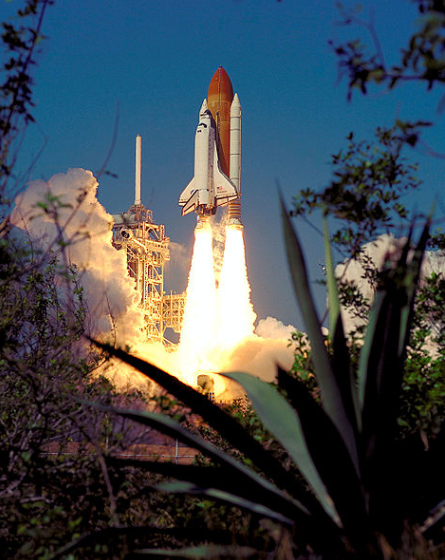Shuttle Radar Topography Mission: Difference between revisions
Jump to navigation
Jump to search
No edit summary |
|||
| Line 2: | Line 2: | ||
== Introduction == | == Introduction == | ||
[[File:EndaevourSTS99.PNG|right | [[File:EndaevourSTS99.PNG|right]]The Shuttle Radar Topography Mission (SRTM) data originate from an 11 day mission flown by the space shuttle Endeavour back in February, 2000, on its mission [http://en.wikipedia.org/wiki/STS-99 STS-99]. | ||
The raw data was collected using an instrument named “Spaceborne Imaging Radar-C”. The raw data was later processed and released as usable digital grid files. About 80% of the total landmass of the Earth is mapped by the STRM data, covering all land between 56 degrees south and 60 degrees northern latitude. A view of the data coverage is shown in Figure 2. | The raw data was collected using an instrument named “Spaceborne Imaging Radar-C”. The raw data was later processed and released as usable digital grid files. About 80% of the total landmass of the Earth is mapped by the STRM data, covering all land between 56 degrees south and 60 degrees northern latitude. A view of the data coverage is shown in Figure 2. | ||
Revision as of 15:41, 22 May 2013
Shuttle Radar Topography Mission (SRTM)
Introduction

The Shuttle Radar Topography Mission (SRTM) data originate from an 11 day mission flown by the space shuttle Endeavour back in February, 2000, on its mission STS-99.
The raw data was collected using an instrument named “Spaceborne Imaging Radar-C”. The raw data was later processed and released as usable digital grid files. About 80% of the total landmass of the Earth is mapped by the STRM data, covering all land between 56 degrees south and 60 degrees northern latitude. A view of the data coverage is shown in Figure 2.